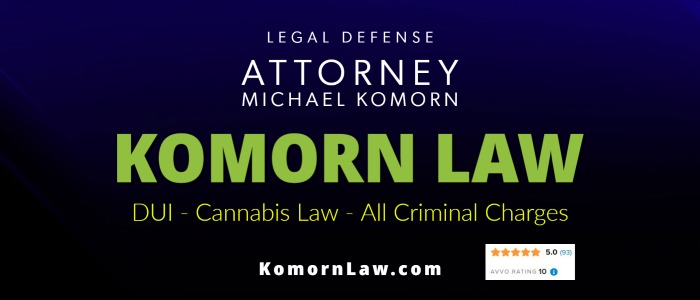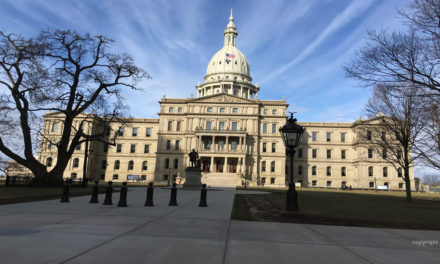You can find it in health food stores, yoga studios, craft fairs, online sites, gas stations and medical marijuana dispensaries.
In forms ranging from tinctures, creams, candy, dog treats and even water, it’s touted, mostly anecdotally, as an ingredient that will do everything from provide relief from chronic pain and anxiety, make your skin smooth and silky, calm down skittish pets and even cure cancer.
And now that Congress passed the U.S. Farm Bill in December, which, in part, legalized hemp, which is derived from cannabis plants, the market for cannabidiol, a compound in hemp that’s better known as CBD, is expected to exceed $22 billion by 2022.
But a confusing mix of state, federal and local laws, combined with uneven enforcement and a misunderstanding about the differences between CBD-infused products made with hemp or with marijuana, has created confusion about what’s legal and what’s not when it comes to CBD, the nonintoxicating compound found in cannabis plants.
“It’s a confusing space right now. It’s not a black market, it’s not a white market,” said Jamie Schau, director of research for the Brightfield Group, a Chicago-based company that studies the cannabis market. “I don’t know if anyone has figured out quite how to tackle this. I can’t think of a comparable product because cannabis has been so stigmatized for decades.”
Arrested for or Charged with DUI or DRUGGED DRIVING?
Contact Komorn Law 800-656-3557
Visit the Komorn Law website
Here’s the source of confusion:
- Hemp and marijuana are both cannabis plants, but hemp has much lower concentrations of tetrahydrocannabinol, or THC, the psychoactive component in cannabis that provides the high for users, than marijuana plants. Since 1970, however, all cannabis has been categorized as a controlled substance and, as such, considered illegal by the federal government.
- The 2018 Farm Bill legalized hemp and provides for regulating the growth of the plant. The fibers and stalks are used for a variety of purposes, including clothing, construction materials, paper, and plastic composites, while the seeds and flowers are used in health food and body care products. The bill also allows for the transportation of hemp-based products across state lines as long as the THC level is below 0.3 percent.
- Around the time the Farm Bill was passing in Congress, the Michigan Legislature also passed laws that remove industrial hemp from the state’s definition of marijuana and requires the Michigan Department of Agriculture and Rural Development (MDARD) to regulate the growing, processing and handling of industrial hemp. Coming up with the rules and regulations surrounding hemp production and processing is a top priority for MDARD, said deputy director James Averill.
- While MDARD has authority over hemp-based CBD products sold in retail outlets, the local county health departments are in charge of CBD products sold in restaurants. So while MDARD hasn’t taken any enforcement action against outlets selling CBD-infused products, the local health departments in Wayne and Oakland counties have ordered several restaurants to stop selling products, mostly cocktails and smoothies containing CBD.
- Right now, CBD products from marijuana plants, which have a higher level of THC, are only available in medical marijuana dispensaries, and they are regulated by the state Department of Licensing and Regulatory Affairs.
Meanwhile, the U.S. Food and Drug Administration still has the authority to regulate products containing hemp-based CBD, and will be holding hearings beginning in April to chart the ways CBD-infused products can be marketed and sold.
It’s a morass at the moment, even for people who deal with CBD products every day.
What’s all the hype about?
The sales of CBD-infused products was a $600 million market in 2018, said Schau, fueled by people trying to replace prescription pain medications with a more natural, less addicting product.
At Better Health Market, a health food store in Novi, nutrition specialist Lauren Wiese said sales have been steadily increasing since the store started carrying the hemp-based CBD products two years ago. Customers keep coming back even though the tinctures and creams and candies are kept under lock and key because of the high prices, which can run as much as $76 for a bottle of CBD oil drops.
“It’s extremely popular because people don’t want to keep taking meds the rest of their life,” said Wiese of Northville, who also uses CBD products to help when her auto-immune disease flares. “We’re going to have to expand and I don’t know how we’re going to fit it into all the cases.”
The products keep expanding in popularity because of word-of-mouth endorsements about relief of pain and even some celebrity endorsements from the likes of Michael J. Fox, who champions CBD to treat his Parkinson’s disease; Jennifer Aniston, who uses the product to treat pain and stress, and Martha Stewart, who is consulting with a cannabis company to develop hemp-based CBD products for pets.
But in examining more than 10,000 research papers on the effectiveness of CBD, University of Michigan scientists Kevin Boehnke, a research investigator in the department of anesthesiology and the Chronic Pain and Fatigue Research Center, and Daniel J. Clauw, a professor of anesthesiology, medicine and psychiatry, wrote in a January article in the Annals of Internal Medicine that while there is evidence of anti-inflammatory and pain relief effects from CBD use, the product quality and potency vary widely because the product is so ubiquitous — and often untested — in both stores and online.
“We do not regard cannabinoids as first-line treatments but as adjuvant therapies to be used before opioids if other options fail to control chronic non-cancer pain,” the two wrote in the article.
Despite the skepticism from medical professionals, Schau predicts that the market for CBD products will grow to $22 billion by 2022 because when the FDA fully legalizes hemp-based CBD, the stigma will be gone as well as the problems associated with it being categorized as an illegal substance. The latter has made it impossible for hemp producers to access banking and credit markets and prohibited businesses from writing off the day-to-day costs of doing business, such as payroll, rent and insurance.
“People don’t want to be associated with cannabis when it’s in this kind of gray area, but with the endorsement of the FDA, there is nowhere to go but up,” she said. “We did a comparable projection on what would happen if the Farm Bill didn’t pass and we came up with a prediction of a $3 billion market. But if you can have it on the local Walmart shelves, that’s a whole different story.”
The future of CBD products
The federal Farm Bill hasn’t been fully implemented yet, so states are still grappling with how they’re going to deal with CBD.
“I know we don’t have a Magic 8 Ball to tell us what regulations may or may not look like. But the federal, state and locals have to find that balance,” said Averill of MDARD, which is in charge of CBD products on store shelves. “We are having conversations at very high levels. Getting this figured out is one of our top three things we’re focused on right now.”
MDARD has to come up with the licensing and regulation of hemp producers and processors, Averill said, noting that no one is legally growing hemp in Michigan right now. “And we have some concerns about the variety of products out there and how they’re being labeled. We’re thinking about consumer protection and safety.”
Added MDARD spokeswoman Jennifer Holton,”We’re not purposely looking to pull these products from shelves. Typically, our department is about education, rather than regulation. But there are a lot of conversations going on about where do we push and from our perspective, we would be focused more on food-type products.”
The FDA, meanwhile, has already approved Epidiolex, a CBD-based product made from the marijuana plant used to treat a severe form of epilepsy and is gathering information on how to move forward with regulating non-pharmaceutical hemp-based CBD products.
Twelve members of Congress wrote the FDA last month, urging it to quickly clear up the differing standards across the nation that have some communities such as New York City and the states of Maine and Ohio banning CBD-infused food products and others welcoming the products.
“States are looking for immediate leadership from the federal government to eliminate the confusion around this issue,” the lawmakers wrote.
FDA Commissioner Scott Gottlieb told a U.S. House Appropriations Committee last week that he plans to schedule public hearings on CBD products in April.
“We’re deeply focused on this. We’ve taken on other hard challenges before and I’m focused on this one,” he told committee members. “I want to preserve the pharmaceutical opportunities for this product, while recognizing that Congress intended that there be a pathway for this product to be available in different forms.”
Until the FDA comes up with its answer, state and local officials are biding their time.
“I wish I had a timeline, but we don’t have one at this time,” Averill said. “But we are having regular meetings.”
Some popular CBD-infused products
CBD products come in all shapes and sizes and at a wide variety of price points that run from as low as $10 or less, all the way up to $400 or more for a high-strength bottle of CBD oils. Some of the products include:
- Oils, tinctures and extracts in varying degrees of strength. The substance comes in a variety of flavors, ranging from mint chocolate to strawberry and peach. And the substance is best used by dropping a small amount under the tongue.
- Gummies and chocolate bars, also in a variety of flavors.
- Patches that can be placed on thin-skinned areas such as the wrist or the top of the foot for pain and stress relief that can last for eight to 10 hours.
- Creams and roll-on liquids that can be rubbed on pain-ridden areas.
- Vape pens for the person who wants to smoke their CBD product.
- Chews, catnips, and liquid supplements that can be given to pets to relieve stress, including for dogs that freak out during fireworks’ displays. Stewart is consulting with Canopy, a Canadian cannabis company to develop CBD-infused pet treats.
Good for the state…
Now Let’s review Section 14.1 of the Marijuana Regulation and Taxation Act voted in by the people of Michigan regarding the allocation of funds.
The People of the State of Michigan enact:
333.27964 Marihuana regulation fund; creation; Administration; allocation of expenditures.
Sec. 14. 1. The marihuana regulation fund is created in the state treasury. The department of treasury shall
deposit all money collected under section 13 of this act and the department shall deposit all fees collected in
the fund. The state treasurer shall direct the investment of the fund and shall credit the fund interest and
earnings from fund investments. The department shall administer the fund for auditing purposes. Money in
the fund shall not lapse to the general fund.
2. Funds for the initial activities of the department to implement this act shall be appropriated from the
general fund. The department shall repay any amount appropriated under this subsection from proceeds in the
fund.
3. The department shall expend money in the fund first for the implementation, administration, and
enforcement of this act, and second, until 2022 or for at least two years, to provide $20 million annually to
one or more clinical trials that are approved by the United States food and drug administration and sponsored
by a non-profit organization or researcher within an academic institution researching the efficacy of
marihuana in treating the medical conditions of United States armed services veterans and preventing veteran
suicide. Upon appropriation, unexpended balances must be allocated as follows:
(a) 15% to municipalities in which a marihuana retail store or a marihuana microbusiness is located,
allocated in proportion to the number of marihuana retail stores and marihuana microbusinesses within the
municipality;
(b) 15% to counties in which a marihuana retail store or a marihuana microbusiness is located, allocated in
proportion to the number of marihuana retail stores and marihuana microbusinesses within the county;
(c) 35% to the school aid fund to be used for K-12 education; and
(d) 35% to the Michigan transportation fund to be used for the repair and maintenance of roads and
bridges.









